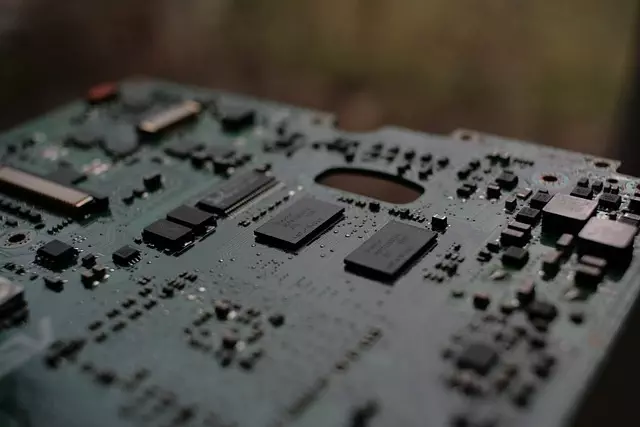Residential foundation repair is vital for homeowners to protect their investment and ensure home safety. Early signs like cracks, unevenness, and moisture intrusion indicate potential foundation problems that can be detected through regular inspections. Common repairs range from simple injections to extensive replacement, with cost-effective solutions available. Proactive care, including proper drainage and inspections, prevents severe issues requiring licensed professionals for advanced techniques and specialized equipment. Regular inspections are key to minimizing repair costs and maintaining property value.
“Discover the importance of affordable foundation inspection for your home’s longevity. This comprehensive guide delves into the essentials of residential foundation repair, equipping homeowners with vital knowledge. Learn why early detection is key through identifying common signs of foundation issues. We’ll walk you through the inspection process and offer cost-effective solutions. From preventative measures to recognizing when professional experts are needed, this article ensures you’re well-informed about your home’s structural health and the potential for residential foundation repair.”
Understanding Residential Foundation Repair: The Basics

Understanding the basics of residential foundation repair is crucial for any homeowner looking to maintain and protect their investment. A foundation is the backbone of a house, supporting its entire structure and keeping it stable over time. Over time, various factors like settlement, shifting soil, poor construction, or unforeseen damage can compromise a foundation’s integrity. This may result in cracks, unevenness, or misaligned walls—signs that indicate potential issues.
Residential foundation repair involves addressing these problems to ensure the structure’s longevity and stability. Common solutions include underpinning, which supports the foundation by adding additional support beams; foundation stabilization techniques like piecing and carbon fiber wrapping to repair cracks; and in severe cases, foundation replacement or relining. Early detection of foundation problems is key to minimizing repair costs and preventing further damage.
Why Affordable Foundation Inspection is Essential for Homeowners

For homeowners, investing in regular affordable foundation inspections is a proactive step towards ensuring the longevity and stability of their homes. The foundation serves as the structural backbone of any residential property, and any signs of damage or instability can lead to costly repairs over time. By opting for affordable foundation inspection services, homeowners can catch potential issues early on, preventing what could become major problems related to residential foundation repair.
These inspections are crucial in identifying common foundation flaws like cracks, settlement, or inclining walls, which may not be immediately visible to untrained eyes. Early detection allows for less invasive and more affordable repairs, saving homeowners significant costs associated with extensive residential foundation repair works. It’s a wise investment that promotes home safety and maintains the property’s value.
Identifying Common Signs of Foundation Issues

Foundation issues can often be subtle at first, but there are several common signs to look out for when inspecting a residential property. One of the most visible indicators is cracks in the foundation walls or floors. These cracks may be hairline thin or wider, and they can appear vertically, horizontally, or diagonally. While some cracks are normal and occur due to minor movements in the soil, wider or expanding cracks could signal more serious problems like settlement or heave caused by improper drainage or soil instability.
Another telltale sign is uneven floors or walls. If you notice that doors or windows are difficult to open or close, or that furniture doesn’t sit level on the floor, it might be a result of foundation movement. Uneven surfaces can also lead to visible bulges or dips in the flooring, wall gaps around doors and windows, or even warped baseboards. Moisture intrusion is another critical indicator; look for stains, peeling paint, or mold growth on walls and ceilings, especially in basements or crawl spaces, as these could point to significant foundation problems that require prompt residential foundation repair attention.
The Process of Conducting a Foundation Inspection

Foundation inspections are a crucial step in understanding the health of your home’s structural base, especially for those considering residential foundation repair. The process involves a meticulous examination of various elements to identify any signs of damage or potential issues. Professionals begin by assessing the overall condition of the foundation, looking for cracks, uneven settling, or any visible deformities. They carefully inspect the walls, floors, and ceilings inside the home, checking for signs of shifting or water damage that might indicate foundational problems.
Using specialized tools, they probe and measure various parameters to gather data on soil conditions, moisture levels, and the integrity of the foundation’s components. This includes examining the foundation’s footprint, looking for any gaps or voids, and assessing the stability of the soil around the structure. By combining visual inspections with these scientific measurements, experts can accurately diagnose problems and recommend appropriate solutions for residential foundation repair if needed.
Cost-Effective Solutions for Foundation Repairs

When it comes to residential foundation repair, cost-effective solutions are within reach. Many common issues can be addressed with simple yet effective repairs that are both budget-friendly and long-lasting. For example, small cracks in the foundation wall can often be repaired with a structural injectite technique, which involves injecting a specialized polymer into the crack to fill it and prevent further damage. This method is not only affordable but also quick and minimally invasive.
For larger issues like settlement or shifting foundations, options like piering or underpinning can be cost-efficient solutions. Piering involves installing steel piers beneath the foundation to stabilize it, while underpinning adds additional support by constructing a new layer of footings below the existing foundation. Both methods are designed to correct structural problems without breaking the bank, ensuring your home’s stability and longevity.
Preventative Measures to Maintain a Stable Foundation

Maintaining a stable residential foundation is an ongoing process that involves regular checks and preventative measures. One of the best ways to avoid costly and disruptive residential foundation repair down the line is through proactive care. This includes regularly inspecting your property for any signs of damage, such as cracks in the foundation walls or uneven floors. Addressing these issues early can prevent them from escalating into major problems that require extensive and expensive repairs.
Additional preventative measures include ensuring proper drainage around your home to avoid water buildup against the foundation, using moisture barriers and sealants to protect against humidity, and maintaining proper air circulation in crawl spaces. Regular pest control is also crucial, as termites and other insects can cause significant structural damage if left unchecked. By taking these steps, homeowners can extend the lifespan of their foundations and reduce the likelihood of needing future residential foundation repair services.
When to Call in Professional Foundation Repair Experts

If you’ve noticed cracks in your foundation, uneven floors, or doors that stick, it might be time to call in the professionals for a residential foundation repair. While minor issues can sometimes be addressed with DIY methods or simple home remedies, more severe problems require the expertise of a licensed foundation repair expert. Uneven settling, often caused by factors like poor soil conditions, excessive moisture, or tree roots, can lead to significant structural damage if left unaddressed.
Professional foundation repair services offer advanced techniques and specialized equipment to assess and fix these issues. They can identify the root cause of the problem, whether it’s a damaged pier, settling cracks, or heave, and provide long-lasting solutions. Regular inspection by experts is crucial for early detection of potential problems, which can save you from costly repairs in the future.
